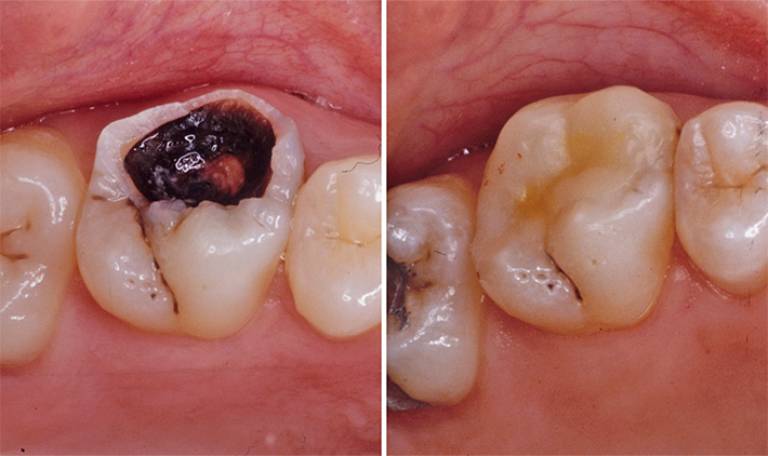New dental composites show promise in inhibiting bacterial growth to reduce decay risk
15 January 2024
Research at UCL Eastman investigates how novel ‘smart’ composite resin filling materials could make filling placement easier and less sensitive to bacterial contamination due to self-sealing, antibacterial and remineralising properties.

These composites have the potential to reduce the need for complete caries removal and encourage a shift towards less invasive tooth restoration procedures that will allow greater natural repair beneath a filling. Furthermore, they could reduce the risk of longer-term recurrent decay beneath fillings which is a main cause of restoration failure.
New study findings, published in the Journal of Functional Biomaterials, suggest that dental composites, with higher early release of an antimicrobial substance called polylysine (PLS), are more effective in reducing the growth of harmful bacteria.
Dental caries is caused by specific oral bacteria (e.g., streptococcus mutans and lactobacillus) producing acids that demineralise tooth enamel and then the underlying dentine. With the continuing phase out of amalgam, composite fillings are a mainstay of dental treatment. Composites, however, have higher failure rates as, unlike amalgam fillings, they lack antibacterial action.
In addition, composites are difficult and time consuming to place in very young children or other special care needs patients within general dental practices. Consequently, the majority of young children are not being treated and are having to wait many months for hospital appointments. Materials that are self-sealing, antibacterial and remineralising have the potential for much easier placement which could help to address this problem. An optimised formulation – known as Renewal MI – developed by the UCL research team, led by Professors Anne Young and Paul Ashley, is currently undergoing phase II clinical trials at the Eastman Dental Institute.
“Renewal MI is a new type of dental filling material, designed to combat bacteria and help teeth repair themselves. Unlike regular fillings, these new composites contain special ingredients that may reduce the risk of recurrent tooth decay and improve the long-term success of dental treatments,” says Lambis Petridis (UCL Eastman), Professor of Prosthodontics and co-author of the latest experimental study.
Principal Investigator, Anne Young (UCL Eastman) Professor of Biomaterials and corresponding author of the study notes: “Renewal MI composites are formulated with reactive fillers, including polylysine (PLS) and monocalcium phosphate monohydrate (MCPM). Both are extensively used in food and are generally recognised as safe. These ingredients contribute to the unique properties of the composites. For this study, we mixed different composite formulations - with increasing levels of PLS – to assess the impact this had on oral bacteria. Overall, we found that increasing the content of PLS in dental composites led to a reduction in early development of oral streptococcus mutans biofilms on the composite surfaces. This could be achieved with only minimal reduction in long-term composite strength.”
Professor Young adds: “While these findings offer promising insights into the development of advanced dental materials, it is important to note that additional research and clinical trials are necessary to determine the long-term effectiveness and safety of smart composites in preventing tooth decay in clinical practice. Phase I clinical trials of one optimised formulation - Renewal MI - proved it could be placed in under five minutes directly on minimally excavated caries. Phase II clinical trials to assess restoration longevity are currently ongoing in the UCL Eastman paediatric department with Professor Paul Ashley.”
Professors Anne Young and Paul Ashley described this work in a public presentation on Tuesday 16 Jan 2024. View recording:
Further information
- Research paper: Effects of Novel Dental Composites on Streptococcus mutans Biofilms. Journal of Functional Biomaterials.
- Prof Anne Young academic profile
- Prof Lambis Petridis academic profile
- Prof Paul Ashley academic profile
- Main image: Tooth decay and novel composite. Credit: Prof Lambis Petrides, UCL Eastman Dental Institute
 Close
Close

